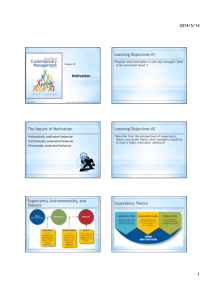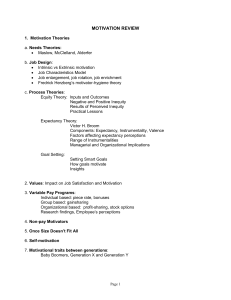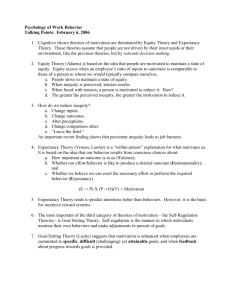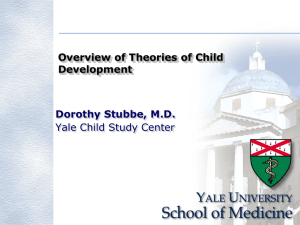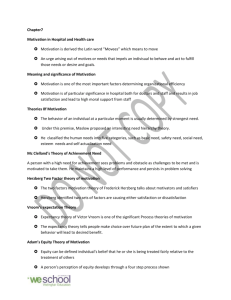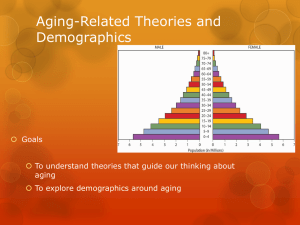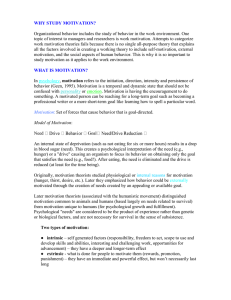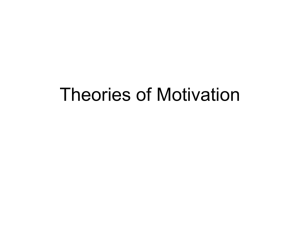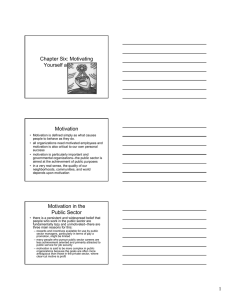Expectancy theory
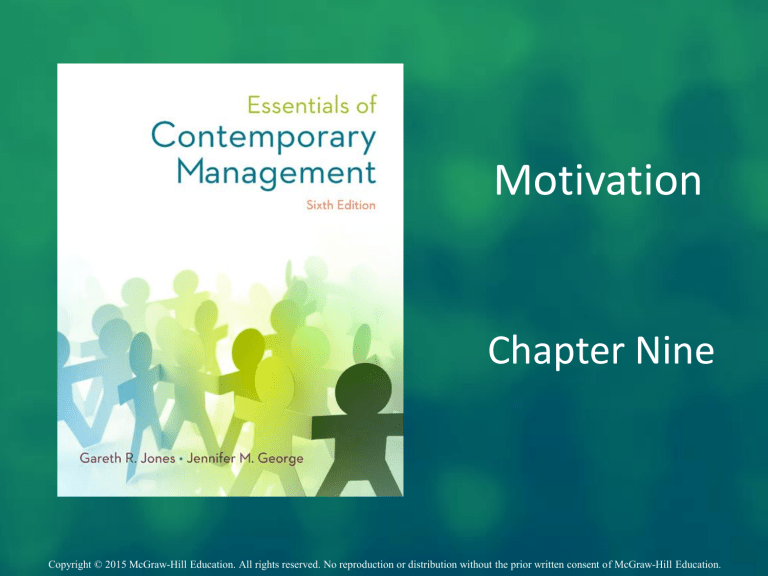
Motivation
Chapter Nine
Copyright © 2015 McGraw-Hill Education. All rights reserved. No reproduction or distribution without the prior written consent of McGraw-Hill Education.
9-1
Learning Objectives
LO9-1 Explain what motivation is and why managers need to be concerned about it
LO9-2 Describe from the perspectives of expectancy theory and equity theory what managers should do to have a highly motivated workforce
LO9-3 Explain how goals and needs motivate people and what kinds of goals are especially likely to result in high performance
LO9-4 Identify the motivation lessons that managers can learn from operant conditioning theory and social learning theory
LO9-5 Explain why and how managers can use pay as a major motivation tool
9-2
The Nature of Motivation
Motivation
The psychological forces that determine the direction of a person’s behavior in an organization, a person’s level of effort, and a person’s level of persistence
9-3
Figure 9.1
The Motivation Equation
9-4
Expectancy Theory
Expectancy theory
The theory that motivation will be high when workers believe that high levels of effort lead to high performance and high performance leads to the attainment of desired outcomes.
9-5
Figure 9.2
Expectancy, Instrumentality, and Valence
9-6
Need Theories
Need Theories
Theories of motivation that focus on what needs people are trying to satisfy at work and what outcomes will satisfy those needs
Basis premise is that people are motivated to obtain outcomes at work to satisfy their needs
9-7
McClelland’s Needs for Achievement,
Affiliation, and Power
Need for
Achievement
A strong desire to perform challenging tasks well and meet personal standards for excellence
9-8
Equity Theory
Equity Theory
A theory of motivation that focuses on people’s perceptions of the fairness of their work outcomes relative to their work inputs.
9-9
Goal Setting Theory
Goal Setting Theory
Focuses on identifying the types of goals that are effective in producing high levels of motivation and performance and explaining why goals have these effects
9-10
Learning Theories
Learning Theories
Theories that focus on increasing employee motivation and performance by linking the outcomes that employees receive to the performance of desired behaviors and the attainment of goals
9-11
Operant Conditioning Theory
Operant Conditioning
People learn to perform behaviors that lead to desired consequences and learn not to perform behaviors that lead to undesired consequences.
9-12
Social Learning Theory
Vicarious Learning
Learning that occurs when a learner is motivated to perform a behavior by watching another person perform and be reinforced for doing so
Also called Observational Learning
9-13
Merit Pay and Performance
Merit Pay Plan
A compensation plan that bases pay on performance
9-14
Salary Increase or Bonus?
Employee Stock Option
A financial instrument that entitles the bearer to buy shares of an organization’s stock at a certain price during a certain period of time or under certain conditions.
9-15
